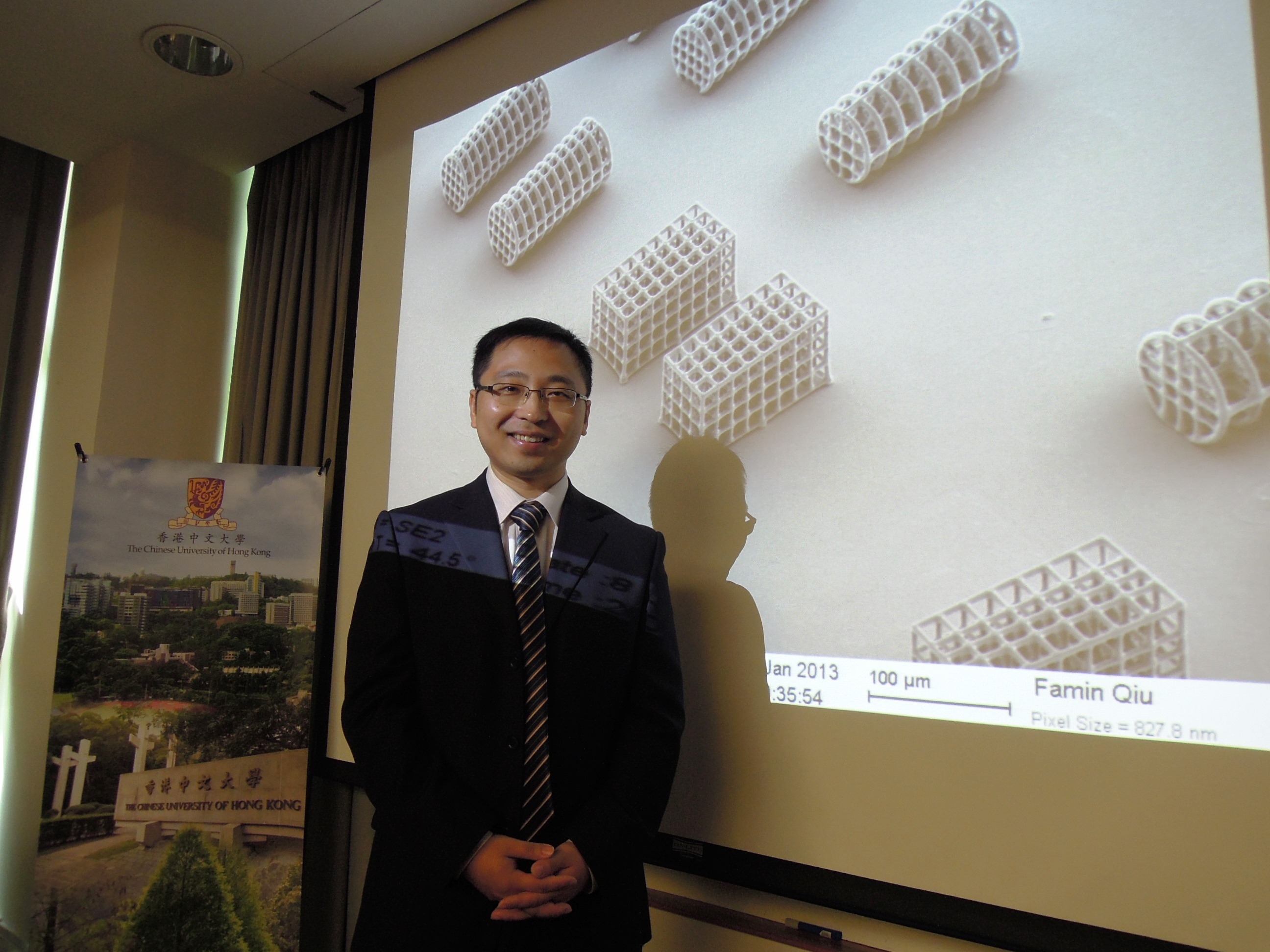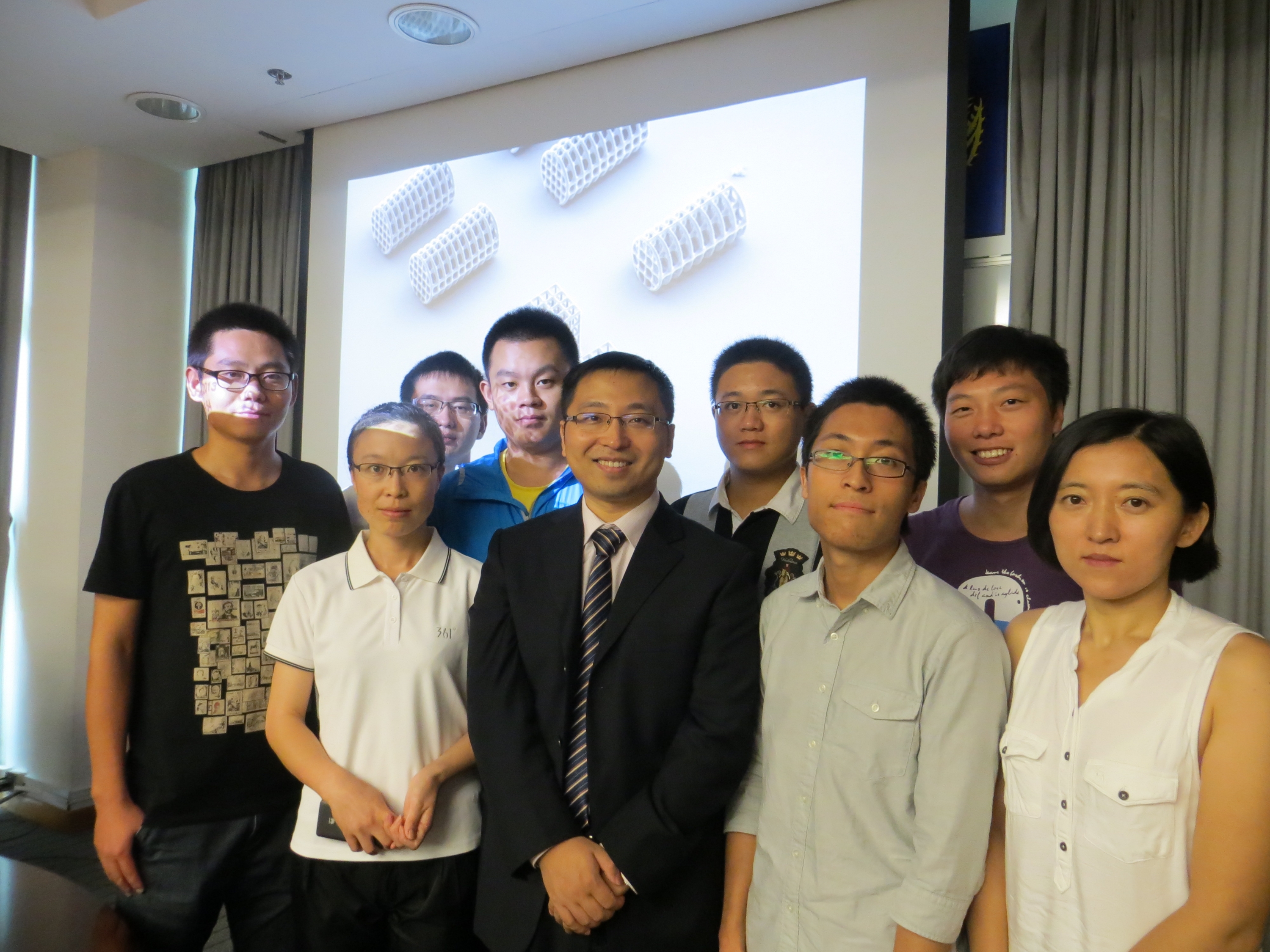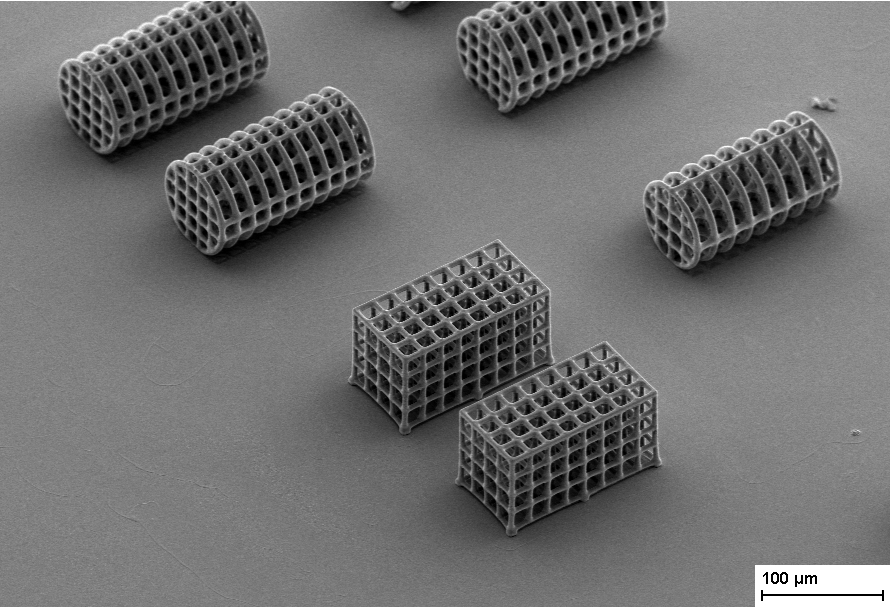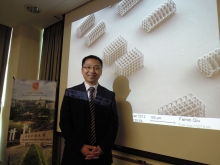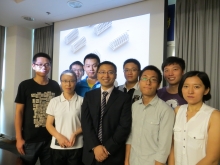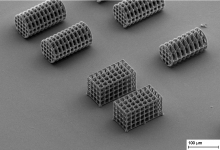CUHK
News Centre
CUHK Faculty of Engineering Innovates Magnetic Microrobots for Cells and Drugs Delivery in Human Body with Overseas Research Teams
Prof. Zhang Li of the Department of Mechanical and Automation Engineering at The Chinese University of Hong Kong (CUHK) and his collaborators have successfully developed a novel type of magnetic microrobots capable of transporting cells and delivering drugs to specific locations inside the body. The new technology has the potential to revolutionize minimally invasive medical treatment such as targeted therapy and tissue regeneration. The research results will be featured as the cover story in the coming issue of Advanced Materials.
The development of microrobots requires interdisciplinary knowledge including mechatronics, materials science, biology, control and automation etc. Microrobots can work in a very small and confined space and thus have broad applications in different fields, particularly in minimally invasive medical treatment. Professor Zhang, in collaboration with Prof. Hongsoo Choi’s group from Daegu Gyeongbuk Institute of Science and Technology (DGIST), Korea, and Prof. Bradley Nelson’s group from ETH Zurich, Switzerland, has innovated the new magnetically manipulated microrobot capable of transporting appropriate amount of cells and therapeutic drugs in specific areas of human body. The technology could lead to targeted treatment of various diseases such as cancer, cerebral infarction and retinal degeneration. The research team has used laser lithography to construct porous 3D scaffolds which were coated with a thin layer of magnetic material (nickel) and biocompatible material (titanium), allowing remote manipulation using external magnetic field and causing no harm to living cells.
Professor Zhang said, ‘Our microrobots have enormous potential in on-demand minimally invasive medical treatment. It allows accurate cells and drugs delivery and reduces risks of complications arising from more invasive treatment methods. The low-strength magnetic fields are biologically harmless to living cells and tissues, and are therefore safe to use in human body. This innovation is a great leap forward in the development of wirelessly-controlled medical microrobots.’
Professor Zhang has been devoted himself to the development of magnetic micro- and nanorobots. Currently he is leading the CUHK research team to improve the performance, intelligence and design of these micro-devices by paying close attention to their locomotion and dynamic properties in fluid. His research results have been highlighted in a number of high-impact international journals, such as Lab on a Chip, Advanced Materials, and Materials Today.


